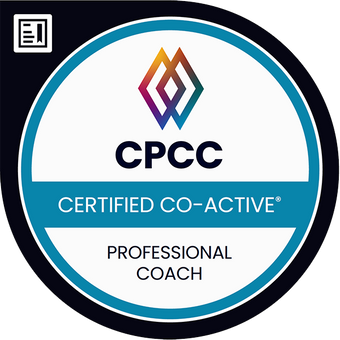
we can influence our happiness with our mindset
The International Coaching Federation describes coaching as “a thought provoking and creative partnership that inspires clients to maximize their personal and professional potential, often unlocking previously untapped sources of imagination, productivity and leadership.”
Coaching supports individuals in building skills, setting and achieving goals, deepening learning and increasing life satisfaction.
A recent study about executive coaching for a Fortune 500 firm by MetrixGlobal reported a 790% return on investment and intangible benefits for people and organizations.
Coach
For
Success
Coaching can be a rigorous learning process and it takes time to integrate that learning into everyday life.
I’ve found that my clients have the greatest success in achieving their goals when they commit to 12 sessions over 3-6 months. After that, some clients choose to switch to a twice-monthly engagement, or for more maintenance support, simply once a month.
Why 12 Sessions?
Most coaching engagements start off with momentum and enthusiasm, then you hit a wall somewhere between 4 - 7 sessions. Coaching feels difficult at times…some insights are hard to take, uncomfortable or annoying feelings arise. And the work isn’t as sexy as it was in the beginning. That’s the “slump” and few people achieve their goals when they quit at this point.
Working through the slump results in the insights that were gained becoming skills and this new learning is successfully integrated into everyday life, which is transformation.
So is it therapy?
While coaching can be therapeutic it is not therapy. Here are a few of the distinctions:
The coach holds the client as naturally creative, resourceful and whole. Therapy is often focused on a diagnoses/disease for the therapist to ‘fix’.
Coaching is about the present and future: What do you want? What’s stopping you? Therapy is often focused on the past and “Why?”.
Many of my clients have worked with therapists and now want to take their insights and learn to apply them to achieving their goals. Some folks work with a therapist at the same time as working with a coach. This combination is not required but can often compliment the work that the individual is doing in their self-growth journey.
My clients and I focus on turning their learning into action and getting results in their lives.
For more details about the differences between coaching and therapy, check out my article 5 Reasons To Hire A Coach

